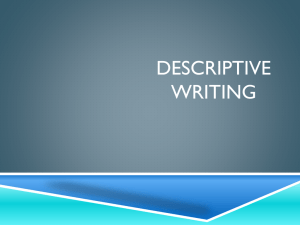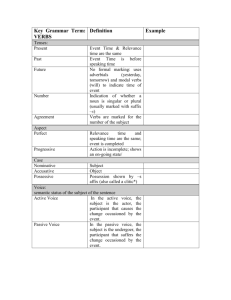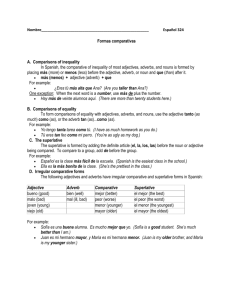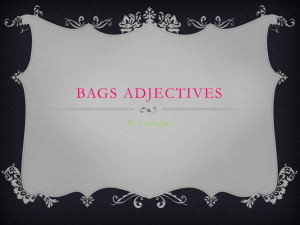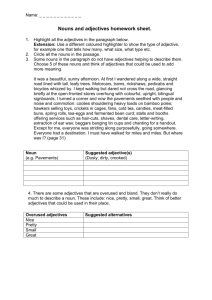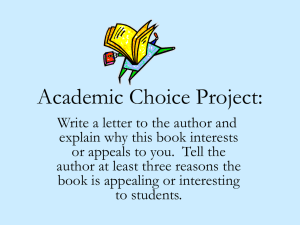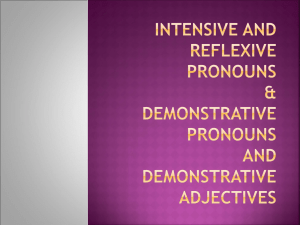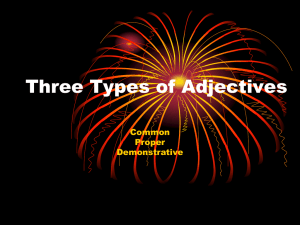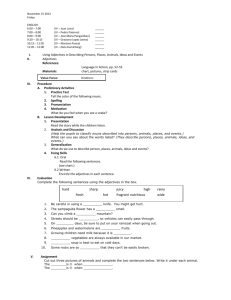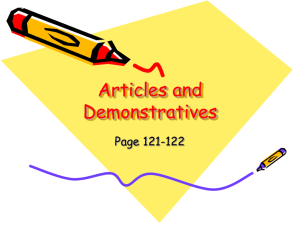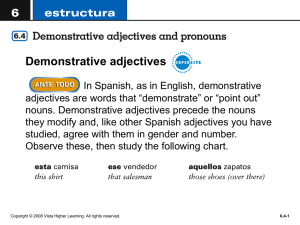Adjectives – a word that describes a noun or a pronoun
advertisement
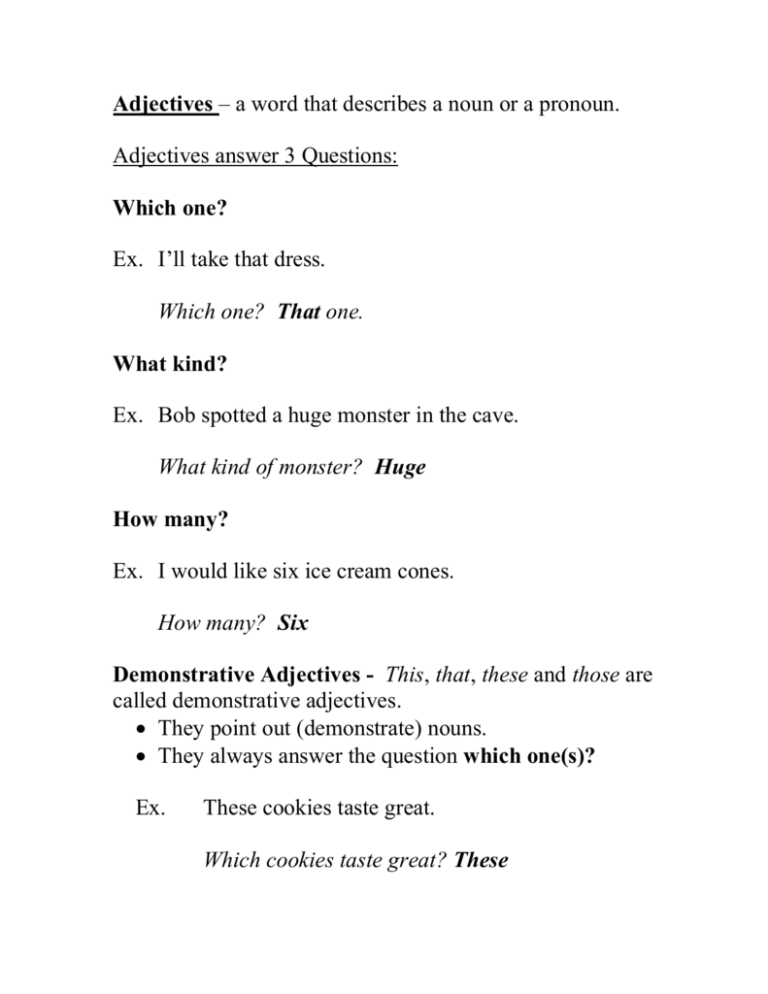
Adjectives – a word that describes a noun or a pronoun. Adjectives answer 3 Questions: Which one? Ex. I’ll take that dress. Which one? That one. What kind? Ex. Bob spotted a huge monster in the cave. What kind of monster? Huge How many? Ex. I would like six ice cream cones. How many? Six Demonstrative Adjectives - This, that, these and those are called demonstrative adjectives. They point out (demonstrate) nouns. They always answer the question which one(s)? Ex. These cookies taste great. Which cookies taste great? These This, that, these, and those can also act as pronouns. Demonstrative pronouns are not followed by nouns as demonstrative adjectives are. Demonstrative pronouns take the place of nouns. Demonstrative adjectives Ex. Give me that comic book. Ex. I’ll give you this baseball card. Demonstrative pronouns Ex. Give me that. Ex. I’ll give you this. Common Adjective – not capitalized. Ex. soft, colorful, red… Proper Adjective – made from a proper noun. It is always capitalized. Examples: Proper Noun China Ireland Proper Adjective Chinese food Irish dancing She’s a Hollywood actress with a Texas accent who loves Idaho potatoes, New England clam chowder, and Maine lobster. Where an Adjective Goes in a Sentence Usually an adjective comes in front of the noun it is describing. Ex. The gigantic creature was hiding in the scary cave. But an adjective can also come after a linking verb and describe the subject of the sentence. Then it’s called a Predicate Adjective. Ex. The creature was gigantic. Articles: A, An, The Comparison of Adjectives: Positive, Comparative, and Superlative Positive Degree (describing one) Comparative Degree (comparing two) great disgusting Superlative Degree (comparing more than two) greater more disgusting greatest most disgusting How to Compare Adjectives Ex. Add er or est to short adjectives of one syllable (and sometimes two syllables). short shorter shortest If a one- or two-syllable adjective ends with a consonant and y, change the y to I, then add er and est. Ex. happy ugly Ex. Ex. Ex. littlest more alert most alert more beautiful most beautiful more interesting most interesting Some adjectives are irregular and don’t follow these rules. good Bad Many littler Put more and most in front of longer adjectives (two, three, or more syllables). alert Beautiful Interesting happiest ugliest If a short adjective ends with e, just add r and st. little happier uglier better worse more best worst most Don’t add er or est at the same time you use more or most.
